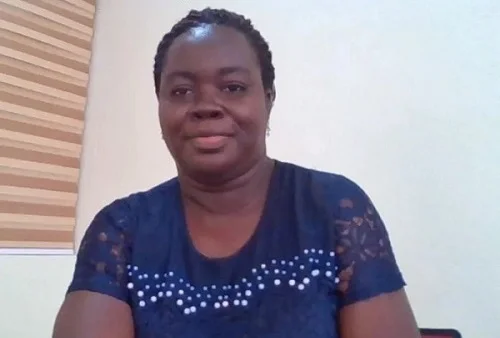Hot!
Beninese citizens feel insecure in the face of increased terrorism

Benin’s government has been taking steps to stop incursions after several months of terrorist attacks in the northwest and northeast of the country.
Despite this citizens still feel insecure. Jihadists first struck Porga in the Pendjari National Park area in December 2021, where two soldiers and an assailant lost their lives.
Following this, the government set up a military base in the north of the country aimed at reinforcing the security of goods and people.
But the attacks continued with the storming of the Monsey and Dassari police stations and other localities in the north, causing loss of life both among armed forces and civilians.
The authorities continue to reassure the people of Benin: “The Beninese army is sufficiently equipped to ward off all the scourges that can disturb the tranquillity of the Beninese,” Alain Fortunet Nouatin, Beninese Minister of Defense said.
“I will tell the people of Benin that they have nothing to fear.”
General Fructueux Gbaguidi, Chief of General Staff of the Beninese Armed Forces reinforced the message:
“We are going to make it so that every time someone tries to tackle Benin that they feel it deep in their spinal cord,” Gbaguidi said.
But the president of a consumer association in Benin, Robin Accrombessi believes the move to counter the jihadist attacks has left the average Beninese with the impression that his freedom of movement has been restricted.
“It prevents the consumer from having psychological security first because we are in constant fear.”
“We don’t know when they’re going to strike, we don’t know where they’re going to strike, we don’t know where we are safe when we move.”
“You have to go to regions and you dare not. You need to go sightseeing, to go to certain parks, to certain tourist sites, you don’t dare. It means that we are no longer free,” Accrombessi said.
Benin has long been one of the more stable countries in West Africa, where Islamic State and al Qaeda militants threaten Sahel countries, although criminal smuggling gangs also operate along its frontier.
Source: www.africanews.com
Hot!
Swedru All Blacks back to winning ways, Roshan humble King Faisal

Sekondi Rospak FC made it eight wins in eight successive home games after three second-half goals from John Amoah, Joseph Ntow and Stephen Anthony Kofi. John Amoah opened the scoring in the 55th minute after a barren first half. Joseph Ntow added to the tally in the 56th minute before Stephen Anthony Kofi rounded things up in the 74th minute to give Rospak a 3-0 win over former Premier League side King Faisal.
Elsewhere at Swedru – leaders Swedru All Blacks humbled PAC Academy in an emphatic 2-0 win. Zayat Bubakari scored first for Swedru All Blacks in the 27th minute before Rudolf Junior Nana Kwasi Mensah made it 2-0 in the 34th minute. Swedru All Blacks are top of the table with 36 points – 4 points ahead of second placed Rospak FC.
Meanwhile, Former Premier League side Cape Coast Mysterious Dwarfs recorded their fourth successive home victory after beaten New Edubiase United 2-1 at the Robert Mensah Park. Enoch Odoom struck first for Cape Coast Mysterious Dwarfs in the 19th minute but Steven Asante equalized for New Edubiase United before halftime. After the interval, Godfred Eshun scored from distance in the 65th minute to help Cape Coast Mysterious Dwarfs secure all the points.
Here are the results in Zone Two

Hot!
Cervical Cancer alert: Avoid sex at early age

The Programmes Manager of Non-Communicable Diseases (NCDs) of the Ghana Health Service (GHS), Dr Mary Efua Commeh, has advised young girls to avoid sex at an early age.
This, she explained, will give the cervix the opportunity to mature before they become sexually active.
“You need to delay what we call the first sexual intercourse as much as possible to give the cervix the opportunity to mature before the person becomes sexually active,” she said.
Dr Commeh stated this in an interview with The Spectator in Accra on Tuesday as a part of the Cervical Cancer awareness month.
According to her, cervical cancer was the second leading female cancer in Ghana with a total of about 3,072 cases annually, and out of that, 1,815 deaths are recorded, representing more than 50 per cent.
She indicated that “If young girls are going to be sexually active, then you need to talk to your parents about being vaccinated.”
She explained that vaccinating young girls against human papillomavirus (HPV) has been found to be a very effective way of preventing cervical cancer.
“There are countries that started HPV vaccination years ago and they are not seeing any cervical cancers now because they would have eliminated most of the high-risk HPVs in their women. So if the high-risk HPV is not there, then obviously the results on cervical cancers are going to go down,” she added.
Dr Commmey said the HPV vaccination is recommended for young girls aged nine to 14 years, adding that it had been found to be highly effective, not just for cervical cancers but for other HPV-related cancers, such as anal cancers, cancers of the vagina, genital warts, amongst others.
She further elaborated that the idea is to put up a barrier before the HPV comes in and that once a young female encounters it, she is already protected.
She also mentioned that for cervical cancers, the main cause is called HPV infection, saying generally, all sexually active women acquire HPV at some point in their lives.
However, the Programmes Manager of NCDs at the GHS mentioned that the body has a way of clearing the HPV, explaining that it is a natural mechanism that goes on, unfortunately, there are a few women whose HPV persists.
Moreover, she noted that the numbers for Cervical Cancer tend to be much higher because at times, clients would wait, and try all sorts of medications before they finally report to the health facility saying “we actually lose some women before they get to the hospitals with over 75 per cent of the cases coming in its third and fourth stages.”
Dr Commey, therefore, called for public awareness while ensuring the availability of information for prevention and control.
By Jemima Esinam Kuatsinu







